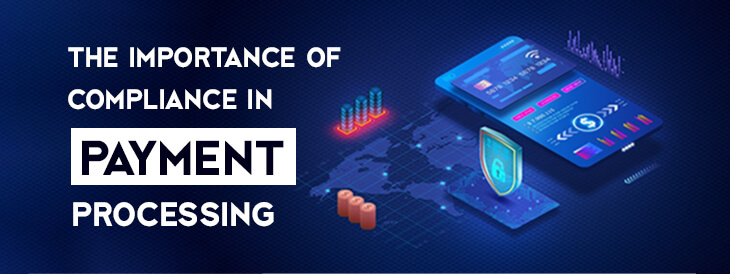The Importance of Compliance in Payment Processing
The Importance of Compliance in Payment Processing

Payment processing is an essential aspect of any business that accepts payments from customers. From small retailers to large corporations. Payment processing is a crucial part of daily operations. However, with the increasing number of financial transactions, there is also a growing need for compliance in payment processing.
Compliance ensures that businesses adhere to regulatory requirements and industry standards, safeguarding both the company and its customers. In this blog post, we will explore the importance of compliance in payment processing and why it should be a top priority for businesses.
Understanding Payment Processing and Compliance
To fully comprehend the importance of compliance in payment processing, it is crucial to first understand the intricacies of payment processing itself. Payment processing involves the collection, transmission, and verification of payment information to facilitate the transfer of funds from the customer to the business. Compliance, on the other hand, refers to the adherence to regulations and industry standards that govern this process.
This ensures the security and integrity of the payment system, protects customer data, and mitigates the risk of fraud or unauthorized transactions. Without a clear understanding of payment processing and the need for compliance, businesses can find themselves vulnerable to financial losses, reputational damage, and legal consequences.
Some Related Blogs
- The Ultimate Solution For Payment Processing In The Entertainment Industry
- Common Mistakes To Avoid With Your Merchant Account
- The Advantages Of Cashless Payment For Your Business
- Say Goodbye To Payment Headaches For Your Marketing Agency
The Role of Compliance in Secure Payment Processing
Compliance plays a crucial role in ensuring secure payment processing. By adhering to regulatory requirements and industry standards, businesses can create a robust and trustworthy payment system. Compliance measures help protect sensitive customer data, reduce the risk of fraud, and maintain the integrity of financial transactions.
It also helps build customer trust, as customers are more likely to do business with companies that prioritize the security and compliance of their payment processes. By prioritizing compliance, businesses can establish themselves as reliable and trustworthy partners in the ever-evolving world of payment processing.
Key Regulatory Frameworks for Payment Processing Compliance
In order to ensure compliance in payment processing, businesses must be familiar with the key regulatory frameworks that govern this area. These frameworks include regulations such as the Payment Card Industry Data Security Standard (PCI DSS), the General Data Protection Regulation (GDPR), and the Anti-Money Laundering (AML) regulations.
PCI DSS sets the security standards for processing card payments, while GDPR protects customer data privacy. AML regulations are designed to prevent money laundering and other financial crimes. Familiarizing themselves with these frameworks is crucial for businesses to stay compliant and maintain the security and integrity of their payment processing systems.
Ensuring Compliance – Strategies for Businesses
Ensuring compliance in payment processing is crucial for businesses to protect their reputation, finances, and customers.
To achieve compliance, businesses should start by conducting regular internal audits and risk assessments to identify any gaps in their payment processing procedures.
Implementing robust security measures such as encryption and tokenization can help protect customer data.
Additionally, training employees on compliance policies and procedures is essential. Businesses should also consider partnering with reputable payment processors who have a strong track record of compliance.
By following these strategies, businesses can minimize the risk of non-compliance and ensure the security of their payment processing systems.
The Risks of Non-compliance in Payment Processing
Non-compliance in payment processing can expose businesses to a multitude of risks. Firstly, failing to adhere to regulatory requirements can result in hefty fines and penalties. This can have a significant impact on a company’s finances and reputation. Secondly, non-compliance increases the risk of data breaches and fraud, putting sensitive customer information at risk.
This can lead to a loss of customer trust and potential legal consequences. Lastly, non-compliance can also result in operational disruptions and loss of business opportunities. To avoid these risks, businesses must prioritize compliance in their payment processing operations.
Leveraging Fintech for Improved Compliance and Security
As technology continues to advance, businesses can leverage fintech solutions to enhance compliance and security in payment processing. Fintech, or financial technology, encompasses various technological innovations that can streamline and improve payment processing operations.
From advanced encryption methods to artificial intelligence-based fraud detection systems, fintech solutions can provide businesses with the tools they need to strengthen their compliance efforts. By embracing fintech, businesses can stay ahead of evolving regulatory requirements, protect sensitive customer data, and ensure the integrity of their payment processing systems. Ultimately, leveraging fintech can lead to improved compliance and security in payment processing, benefiting both businesses and their customers.
![]()
Email us anytime!
Email customer service 24/7 at info@binarygateways.com
![]()
Call us anytime!
Reach customer care 24/7 at (801) 761-5001
